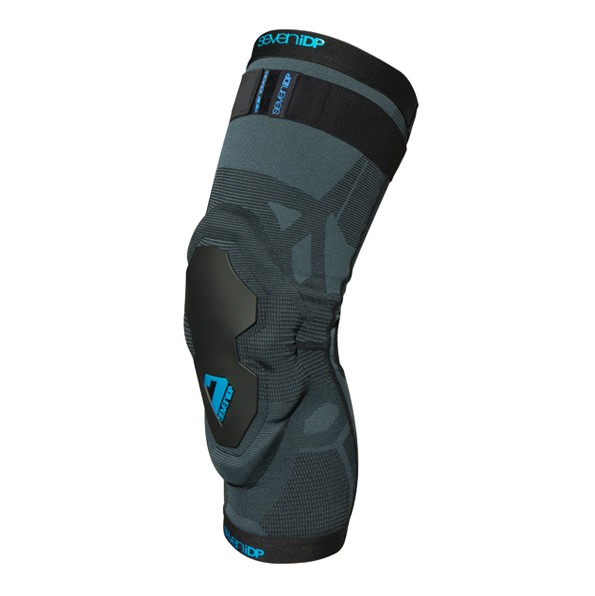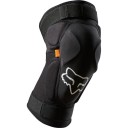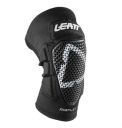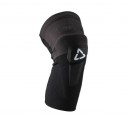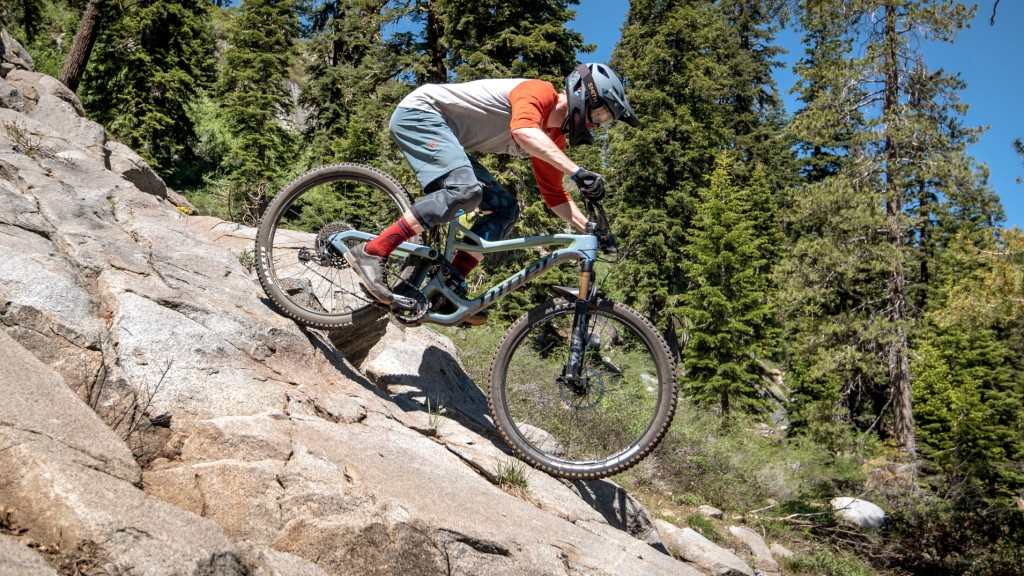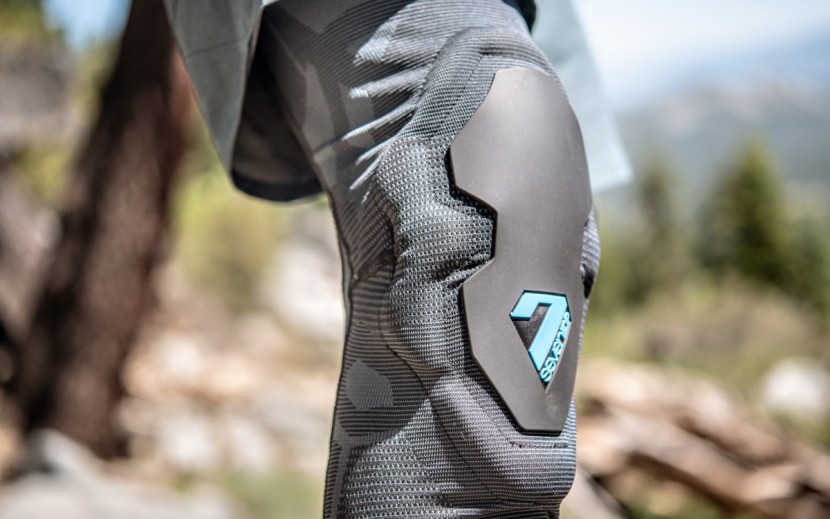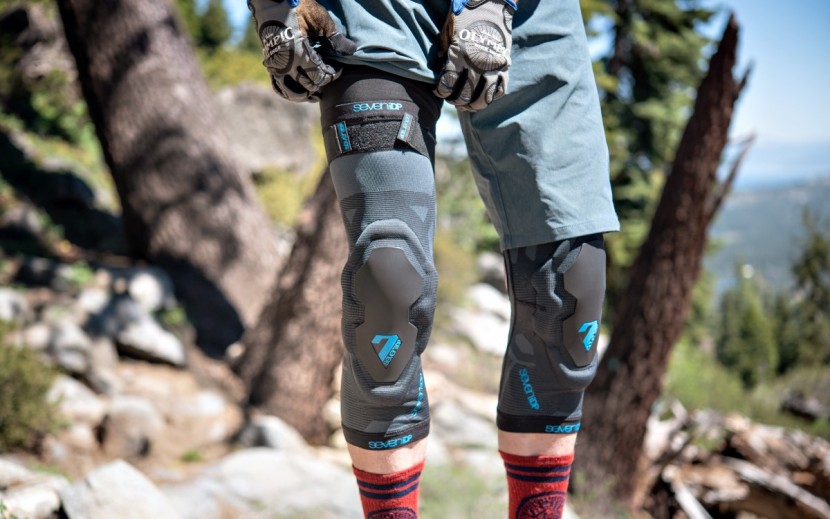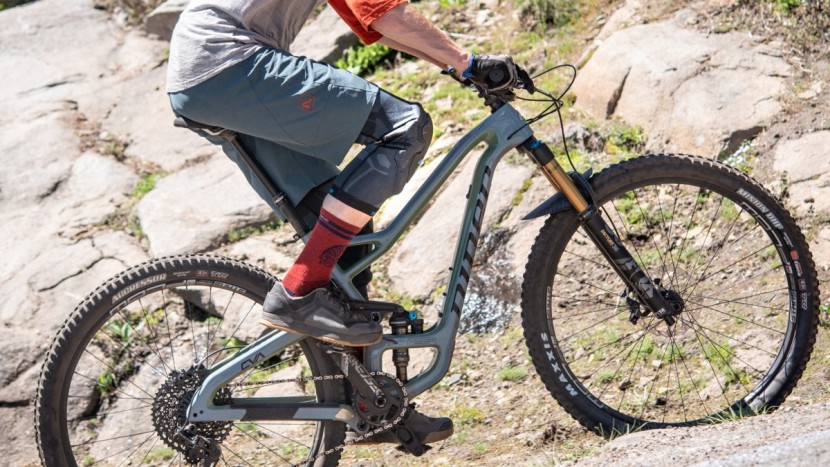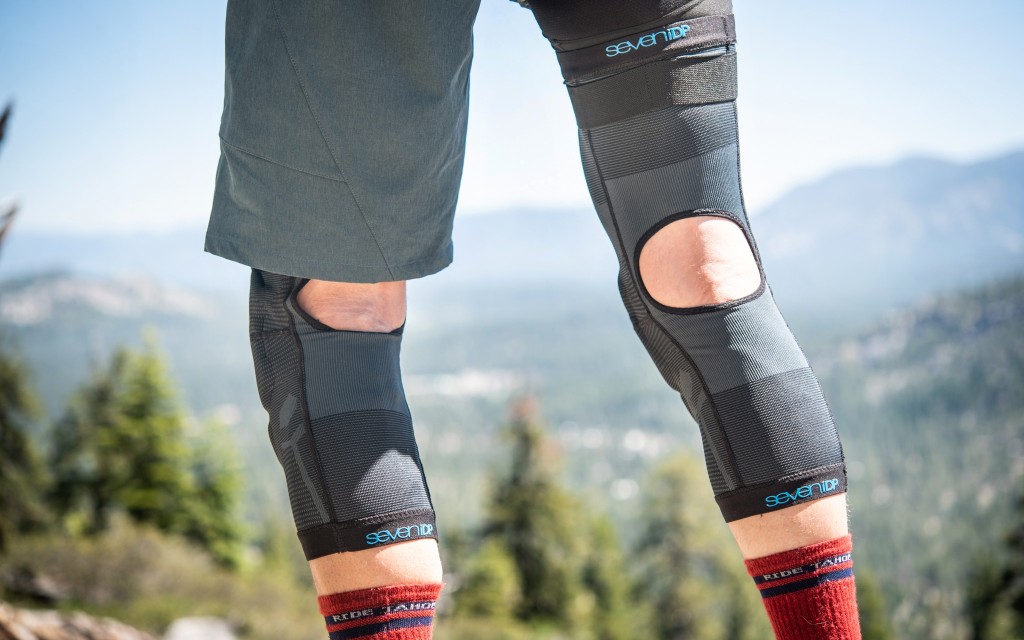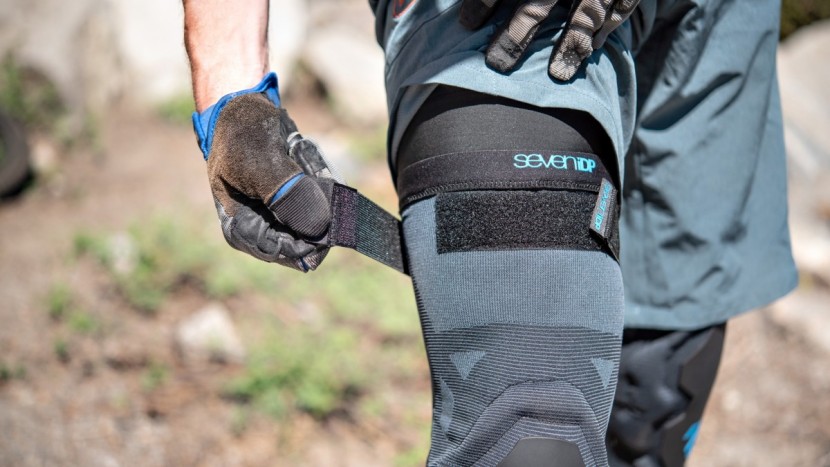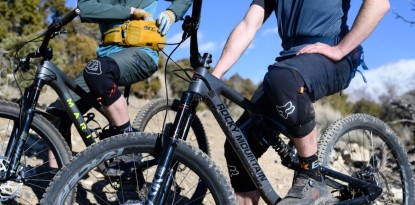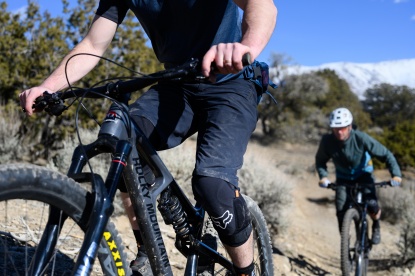7iDP Project Knee Review
Our Verdict
Compare to Similar Products
 This Product
7iDP Project Knee | |||||
|---|---|---|---|---|---|
| Awards | Best Overall Mountain Bike Knee Pads | Best for Downhill Riding | Best Blend of Protection and Pedal-Friendliness | Another Great Mid-Duty Knee Pad | |
| Price | $99.99 at Amazon Compare at 2 sellers | $95 List $54.44 at Amazon | $98.00 at Amazon Compare at 2 sellers | $100 List $63.98 at Amazon | $120 List $59.99 at Amazon |
Overall Score  |
|||||
| Star Rating | |||||
| Bottom Line | A burly and aggressive knee pad built for hard-charging | A dialed set of knee pads that deliver a fantastic fit and substantial protection while retaining pedaling abilities | A burly set of knee pads that are exceptionally comfortable and offer a tremendous fit | Leatt strikes a perfect balance of protection and pedal-friendliness with these quality pads | Practical pedal-friendly knee pads for trail and all-mountain riders |
| Rating Categories | 7iDP Project Knee | Fox Racing Launch D3O | Fox Racing Launch P... | Leatt Airflex Pro | Leatt Airflex Hybrid |
| Protection (30%) | |||||
| Fit and Comfort (20%) | |||||
| Pedal Friendliness (20%) | |||||
| Ventilation and Breathability (20%) | |||||
| Durability (10%) | |||||
| Specifications | 7iDP Project Knee | Fox Racing Launch D3O | Fox Racing Launch P... | Leatt Airflex Pro | Leatt Airflex Hybrid |
| Weight (per pair, size L) | 420 grams | 445 grams | 410 grams | 256 grams | 363 grams |
| Padding Material | Sas-Tec kneecap pad with flexible hard cap/polygon foam | D3O polyurethane | Removable Hard Cap with D30 Padding | AirFlex impact gel | AirFlex gel, Sliding hard shell knee cup |
| Body Material | Pro-knit breathable sock | 20% nylon, 40% neoprene, 5% polyester, 5% spandex | 30% neoprene, 25% polyurethane, 18% thermoplastic polyurethane, 14% nylon, 13% polyester | Moisture Cool, Airmesh | Knitted base layer, MoistureCool and AirMesh fabrics |
| Adjustments? | Center strap system (top), Velcro from both sides | No | Adjustment straps + removable hard cap | No | No |
| Safety Certifications | CE EN 1621-1 | CE EN 1621-1 Level 1 | EN1621-1:2012 | CE EN 1621-1 | CE EN 1621-1 |
| Available Sizes | S-XL | S - L | S, M, L | S - XXL | S-XXL |
Our Analysis and Test Results
The 7iDP Project Knee pads impressed our testers with high-levels of protection. As a result, they score very well in protection and fit, while ventilation and pedal-friendliness aren't strong suits. After all, there are other pads designed for long rides and burly climbs. These pads are built for getting rad and are our Top Pick for Aggressive Riding.
Protection
The Project Knee pads offer serious protection. The design of the armor and padding isn't as intricate-looking or flashy as the multiple padded zones on other pads, but they offer the most impressive protection of all of our tested pads. The main patch of armor is located front and center on the knee, and the main piece of protection is an insert you can remove to wash. This insert is flexible and bendable but not quite as soft as other options. That said, the stiffer, firmer material inspires confidence to push the speed limit. The main protective zone has a plastic shield on the exterior that is designed to slide over surfaces in the event of a crash. Where other ribbed plastic or fabric knee caps may catch on the ground and make the crash more severe, the Project Knee pads are designed to slide.
Outside of the main protective zone, there is a padded foam border. In other words, where the flexible insert ends, a foam rim protects the perimeter and abutting areas. The padding is approximately .75 inches thick and .75 inches wide. This is extremely important in the event of an off-kilter crash that isn't straight onto the knee.
The Project Knee has the longest sleeve in our test, constructed of a substantial fabric they refer to as a knit sock. The material feels far more robust than the other pads in our test. This extended coverage and sturdy fabric serve as a nice layer of protection from branches or thorns hanging into the trail.
Fit and Comfort
The Project Knee pads have a fairly well-sorted fit. They can be adjusted with two velcro straps at the top of the knee pad. It is easy to get the upper cuff dialed into the right level of tightness and comfort. When your leg is bent, the fabric is taught with no big ripples or excess material. When the leg is fully extended, there is some excess fabric at the top of the sleeve. This isn't a big deal, and it may be somewhat inevitable. Either way, it is noteworthy.
These pads are comfortable, and they have a cozy feeling on the leg. There are no pressure points or areas prone to chafing. They are, however, a little toasty, discussed in more detail in the ventilation section below. The major takeaway is that these aggressive and heavier-duty pads are constructed with serious materials. More material means extra weight that will inherently be warmer than lightweight and thin pads.
Pedal Friendliness
These pads are reasonable while pedaling, considering their level of protection. These are not the knee pads we would suggest if your idea of fun is a 5000-foot climb. They are better suited for shorter climbs or shuttle laps. They pedal fine but there are better options if this is a particularly important metric to you. If you plan on frequently wearing your pads for more than a couple hours, we would steer you towards something lighter and less bulky, that's not where these pads shine. On the product page of the 7 Protection website, several references state these pads were designed for racing. We assume this means enduro or downhill racing, neither of which focus heavily on pedaling.
When you are cranking away, these pads stay in place and don't shuffle around at all. They are comfortable against the leg and knee and don't cause any irritation — there is no restriction to the pedal movement at all. Despite their relative bulk, the armor on these pads still has plenty of clearance on the frame. That said, the heft is still quite apparent. It feels like you're spinning the pedals with a big, armored sleeve strapped to your legs, but that's because you are.
Again, it is essential to recognize what these pads are designed for. While they post a mediocre score in terms of pedal friendliness, it is not a huge deal. That is like penalizing a 19-pound cross country race bike for not handling bike park laps very well. For the right user, these pads are stellar.
Ventilation and Breathability
The Project Knee pads do not breathe very well. The thick and hefty construction limits the amount of air that can circulate. The front of the pad and tightly knit sleeve are not easy penetrated by air as the big protective patch acts like a shield, and the sleeve traps it. Other pads have a panel of mesh on the rear of the pad to encourage air to escape, or they use a lighter duty sleeve material that releases a bit of heat. These pads do not have either of these features. That said, even if it is warm, the tightly knit sock feels extremely secure while some of the materials on other pads are so soft and stretchy, they can feel flimsy.
The Project Knee pads do have a circular cutout on the rear of the pad just behind the knee cap. The cutout is located at the crease where your lower leg and upper leg meet, which can be a particularly humid location. This cutout helps get a little bit of that moisture escape. Although it's small relative to the entire length of the pad, it is a nice touch, and it works to regulate moisture a bit.
Much like the pedal-friendliness metric, we need to keep in mind what these pads were designed for. They are not intended for long rides in the saddle. As a result, we are okay with them not being quite as breathable.
Durability
The Project Knee are built to last. This helps justify them having one of the higher price tags in our test. We have some concerns about how well some of our other tested pads would withstand a season of crashing and being dragged across the trail, but we have very few concerns about these pads taking some serious abuse.
The main armor patch on the Project Knee is a sizeable hard material that will help the pads survive crashes far better than the fabric-covered armored on other pads. While fabric might tear in a crash, the hard armor on these is far more substantial. Also, the tightly knit sleeve material has by far the most robust feel among our tested pads. It is the thickest and burliest by a good margin. As a result, we feel they will survive the abuse of mountain biking far better. Seams and stitching are well placed, and they are more or less out of the way of significant impact zones.
It is challenging to take the pads on and off with shoes on. We don't recommend trying to do so. The long sleeve is just too narrow to fit a shoe through safely.
Value
The Project Knee pads are among the most expensive options in our test. That said, they still represent a solid value for the right buyer. The quality of the design, execution, and finish is top-notch, and the protection is there. This justifies the high price tag, in our opinion.
Conclusion
Thanks to their impressive level of protection, the 7 Protection Project Knee pads take home a Top Pick for Aggressive Riding. Folks who are seeking a pad that offers higher levels of protection so they can push the limits will love these. Durability and protection are the particular strong suits of these pads, while pedal-friendliness and ventilation are a little outside the design scope. If your idea of fun is shuttle laps and feeding it down gnar, then these pads are for you.


